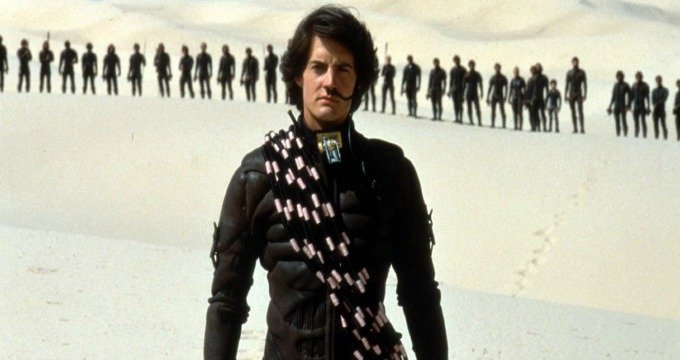A Dune tabletop RPG is coming thanks to game publisher Gale Force Nine. The company has landed a multi-year license with Legendary Entertainment and Herbert Properties LLC to produce a series of tabletop games. According to the official press release, the team at GF9 can pull ideas from the “full scope of the Dune franchise — spanning the many publications from Frank Herbert, Brian Herbert, and Kevin J. Anderson — along with multiple direct tie-ins with Legendary’s highly anticipated film from director Denis Villeneuve.”
You can expect GF9’s tabletop games, including board and miniature games, to hit the market prior to the new Dune movie release in 2020. It’ll be interesting to see how GF9 creates tie-ins for the upcoming film but having both release near the same time will help fans notice and appreciate the connections.
Vice President of Licensing & Partnerships for Legendary Jamie Kampel said the company “looks forward to a fun and meaningful contribution to this revered legacy property,” while also adding that GF9 has “demonstrated a skill and passion for building successful tabletop game series.” Both of these statements were likely referring to Star Trek Adventures and Fallout: Wasteland Warfare, which GF9 was behind. Likewise, GF9 CEO John Paul Brisigott expressed his excitement as well.
“Dune is a rich and wonderful universe, and we expect to produce an equally expansive and inspired line of games for years to come,” he said on the press release.
Legendary Entertainment is doubling down on Dune content since it originally purchasing the rights to the franchise back in 2016. Since then, we’ve gotten word of an upcoming film adaptation that will explore the first novel over the course of two separate movies. While the franchise did see a film adaptation back in 1984, it flopped at the box office. This reboot is an attempt to redeem Dune‘s big screen presence.
Dune is a sci-fi novel written by Frank Herbert and first published back in 1965. Set in the far future, it deals with drama surrounding noble houses and is interspersed with motifs regarding politics, religion, and interpersonal relationships.
[Source: Gizmodo]










